|
|
| |
|
     
PROJECT "XXI CENTURY THEATRE. EAST MEETS WEST – WEST MEETS EAST"
The recent decade has
brought about major changes to theatre in terms of theatrical text,
acting, as well as stage practices and techniques. The aim of the
international project titled EAST MEETS WEST – WEST MEETS EAST. 21ST-CENTURY
THEATRE, which was initiated by the Juliusz Słowacki Theatre in
Kraków in 2011, and is to be continued throughout 2013, is to
address these changes and to assess the results. Along with the
Voskresinnia theatre nine major European theatres are taking
part in the project. One of the project’s important objectives is to
find answers to the following questions: Have these changes equally
affected theatrical practices in Eastern and Western Europe? How do
they relate to regional theatrical traditions?
Project Leader:
|
 |
THE JULIUSZ SLOWACKI THEATRE
(Kraków,
Poland)
|
Partners:
I.
AIM OF
THE PROJECT
The last decade provided theatre
with many innovations, concerned
with all basic aspects of stage
practice – acting, dramatic text
as well as functioning of the
stage and stage techniques.
These innovations were
influenced by many external
factors. The factors that are
most often mentioned are: a
fundamental shift as far as
reality perception and
comprehension are concerned -
the transition from the
linear-consecutive model to the
simultaneous model with a multi
perspective; interference of
mass media and technological
factors; elimination of
boundaries between high and
popular art; new styles of
reception of theatre work, as
well as a diversified group of
changes, for the culture and
civilization, specific for the
post-modern phase.The main aim
of this project will be not only
noticing the changes and stating
their significance for the
present state of theatre, but
most of all providing a
comparison of theatre practice
of eastern and western Europe.
As a consequence it will provide
some multilateral experience
sharing opportunities. In
particular this project’s goal
will be to state whether the
transformations apply to both
regions equally or there are
some differences, based on a
different cultural context,
different theatre traditions or
different dynamics of historical,
social, or political
changes.What will become
significant is – most of all –
answering the question about the
existence of separate theatre
languages/“worlds” of eastern
and western Europe. The other
possibility would be – as some
researchers claim – that also in
the theatrical aspect we
constitute a “global village”,
in which all distinctions and
differences of esthetical and
cultural codes have long been
blurred. Secondly – it will be
important to provide an answer
to the question whether both of
the geographic and cultural
areas share the division lines
in the sphere of theatre life (i.e.
traditional and modern theatre,
politically involved and
politically indifferent theatre,
theatre of “the young” and of
“the old”, artistic and popular
theatre, etc.).Finally
– investigating the trans- and
intercultural space with regards
to the theatre practice in both
regions, that means defining the
visible bilateral influences and
inspirations or perhaps – to the
contrary – autonomies and
barriers.
II.
PARTICULAR PROBLEMS
Within the project three theme
groups will be distinguished,
concerning the transformations
of the most important aspects of
stage practice, mentioned above.
-
Text
in the theatre of the 21st
century
-
Histrionic art of the 21st
century
-
Stage and stage
techniques in the 21st
century
An
outline of the problems:
Ad.
1 The actor in the modern times
in view of tradition – an
attempt of defining the
“traditional” and “modern”
acting phenomena (the
controversial problem of
legitimacy of such a division).
Relation between the actor and
the spectator – then and now:
the stage distance and the “idea
of denudation”. Problem of the
obscenity limits and their
blurring. The performance and
performativity influence on the
acting techniques (shift from
acting to non-acting), new forms
of stage actions. Actor’s body
and gender as an area for stage
experiments. Political and
ethical aspects of actor’s
transformation and the audience
elicitation. Development of the
„stand-up” spectacles – the
cultural and social causes of
the phenomenon. Actors’
education towards the
transformations of the theatre
of today. Syncretism of the
stage expression techniques as a
challenge for a contemporary
actor. Comparison of the actors’
training methods in artistic
schools in the eastern and
western Europe.
Ad.2. The present status of the
drama text in theatre –consequences
of the drama gaining epic
characteristics, moving more
towards the discourse and
relation between the author and
audience, disintegration of the
language and the traditional
drama structure. Formal
eclecticism, in style and
category of contemporary drama.
Anti-illusionism and
anti-mimicry of the latest
drama. The influence of video
games and RPG on the
construction of the world
presented in the drama text. New
forms of a theatrical text:
post-drama and meta-drama.
Current conflict drama-theatre
in comparison with the
traditional drama model (“text
on stage”). The consequences of
post-drama as an extreme form of
theatre moving away from the
classical dramatic text (crisis,
dramatic plot – fragmentation,
ellipticity and discontinuity,
hybrid features of drama,
breaking of the time and space
order, destruction of the stage
characters, blurring of
boundaries between the forms of
monologue and dialogue, etc.)
The triumphant return of the
“piéce bien faite” as a
counterweight for the post-drama
– psychosocial and cultural
causes of this phenomenon. The
condition of the classical text
in the latest theatre – the
“recycling” and “re-writing”
techniques. The “Author’s place
in the traditional, post-modern,
and post post-modern theatre.
New interpretation languages in
the drama cannon and their
significance for the modern
stage practice. The playwright’s
function as an intermediary
between the drama text and the
stage.
Ad. 3. Stage in the latest
theatre – existence and
elimination of the so-called
“fourth wall” rule. The
conventional stage and
annexation of the space beyond
stage and theatre in a
contemporary theatre spectacle.
Traditional stage design against
present stage design experiments
(minimization, “empty stage”,
“theatre of light”, “theatre of
cinematography”, “concrete
theatre”, etc). New (mass) media
in theatre – functioning as an
inspiration and an integral
spectacle element. Multimedia of
the modern theatre spectacle –
its meaning and causes, for the
culture and civilization. New
technologies in the stage
practice and their influence on
the reception of the audience.
Theatre as a synthesis of arts –
then and now. The contemporary
total theatre – its traditions
and place in the cultural
system.
|
TEXTS IN 21ST-CENTURY
THEATRE
Text, event and
responsibility in modern theatreThe
Juliusz Slowacki Theatre in Krakow
12 - 14 December, 2011
INTERNATIONAL
CONFERENCE
The recent decade has brought
about major changes to theatre in terms of theatrical text, acting, as
well as stage practices and techniques. The aim of the international
project titled EAST MEETS WEST – WEST MEETS EAST. 21ST-CENTURY
THEATRE, which was initiated by the Juliusz Słowacki Theatre in Kraków
in 2011, and is to be continued throughout 2012, is to address these
changes and to assess the results. Along with the European
theatres are taking part in the project. One of the project’s important
objectives is to find answers to the following questions: Have these
changes equally affected theatrical practices in Eastern and Western
Europe? How do they relate to regional theatrical traditions?
The first part of the
project was focused on the present condition of theatrical text – in
particular within the context of such important phenomena in recent
years as postdrama, political and performative theatre. During the
Conference, we have been discussed the specificity of new forms of drama
(in particular postdrama and performance) versus traditional drama,
whilst simultaneously attempting to find an answer to the question of
whether “classical” text is likely to disappear in view of these new
developments.We will also deal with the new concept regarding the
political aspects of theatre – i.e. what are the present varieties of
political theatre? Another question is: What is the role of text and
theatrical event in the political theatre of today?Of equal importance
will be the fundamental question about the form of a political text (and
spectacle), and, more specifically: What forms of text and theatrical
events prove to be the most effective in pursuing broadly understood
goals of political theatre? What does responsibility for text and
theatrical performance mean today? How does recent political theatre
communicate with the audience?The meeting as such was also important for
us as an opportunity to interweave theory and practice. This is why the
conference programme will include both presentations by experts and
brief presentations by people who actually practice theatre – invited
guests from Eastern and Western European theatres who deal with these
issues on a daily basis in their stage productions.
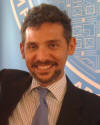 |
Lanfranco
Li Cauli
(Head of
Cmmunications and Marketing)
Piccolo Teatro di Milano,
Mediolan
"The
International and Euro-Mediterranean Piccolo Teatro’s
experience" |
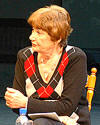 |
Ludmila
Ostropolskaya
(theatre critic and literary
manager)
Yevgeny Vakhtangov State Academic Theatre
„Role of text in a contemporary drama". |
|
  |
Sabine
Zielke
(dramatist)"Text
and body in the danger"
Volksbühne am Rosa-Luxemburg- Platz
MexSchlüpfer (actor) "The
significance and positioning of the Volksbuehne am
Rosa-Luxemburg-Platz in relation to text and language (s)
within the theater scene in Germany" |
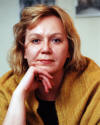 |
Evgenia
Kuznetsova
(kierownik literacki)
The Moscow Sovremennik Thetare, Moscow
Transcription
of prose
for the stage based on several
productions of the theatre “ Sovremennik””
.
|
|
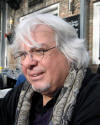 |
Didier Thibaut
(Director)
La Rose des Vents
(Metropolia
Lille)
"Theatre
of text, image theater ... an old quarrel between the
ancients and the moderns?" Artistic developments of the La
Rose des Ventes 1995-2011”
|
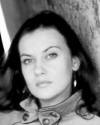 |
Gintė Pranckūnaitė
(literary manager
The State Youth Theatre,
Vilnius
Public readings of drama: in a search for new texts ”
|
|
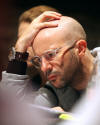 |
Dodo
Gombar
(director,
artistic director)
Svandovo
Divadlo na Smichove,
Praga„
"The
Journey from Theatre in your mind to the theatre for a mind” |
 |
Anna
Halas
(literary
editor, theatrologist, drama translator
Lviv Academic Theatre
Voskresinnia, Lviv
„
Bringing forward the unsaid: meaning hidden behind the text
(an attempt to explore extra textual manifestations of
theatre performance”
|
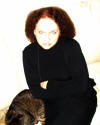 |
Anna Burzyńska
(literary
manager ,
Head of the Department
of Theory
of Literature
Faculty of
Polish Studies,
Jagiellonian University,
playwright) The
Julius Slowacki Theatre, Krakow
„ Politics
and form in the modern theater” |
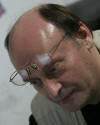 |
Sergiy Wasiliev
(theatre
critic and columnist
The Kiev Academic Molody Theatre
„Theatre
in the absence authorities” |
|
Workshops leaders
: |
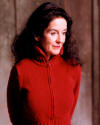 |
Stefanie
Carp
(dramatist,
Performing Arts Director of the Viener Festwochen) |
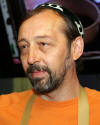 |
Nikołaj
Kolada
(playwright, actor, director ) |
|
Experts: |
|
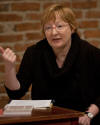
Małgorzata Sugiera
(theatrologist
, translator,
Head of
the
Department
of
Performance Studies
at the Jagiellonian
University) |
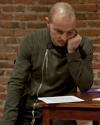
Mateusz Borowski
(theatrologist
, translator,
Assistant Professor
in
the Department of
Performance Studies
at
the Jagiellonian University) |
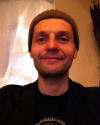
Iwan
Vyrypayew
(actor,
director,
playwright) | |
|
Moderators : Paweł Sztarbowski (The
Raszewski
Theatre Institute
in Warsaw)
and Marcin Kościelniak ("Didaskalia"). |
|
| |



|
| |
|

|